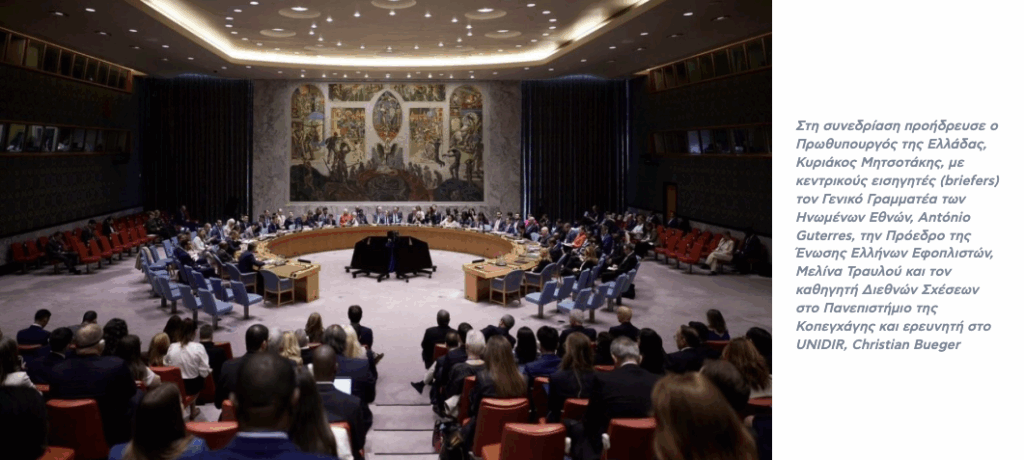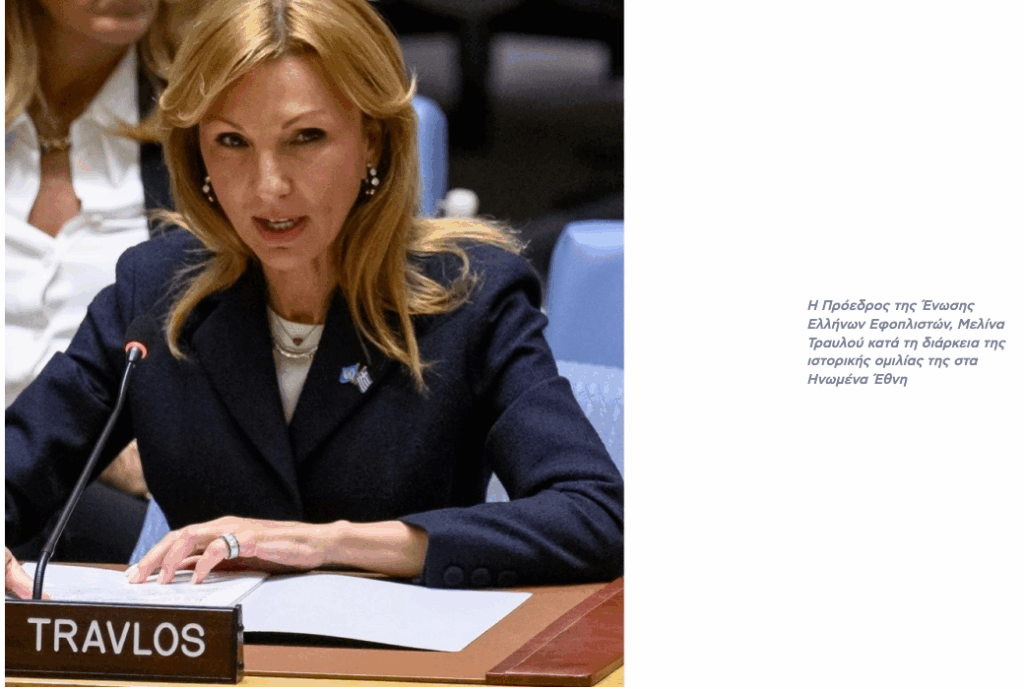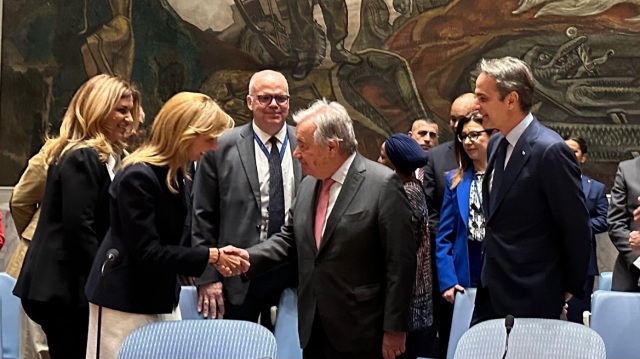A significant event titled “Strengthening Maritime Security through International Cooperation for Global Stability” took place at the United Nations Security Council Headquarters in New York on Tuesday, May 20, under the auspices of the Hellenic Presidency of the United Nations Security Council.
The session was led by Greek Prime Minister Kyriakos Mitsotakis, featuring key speakers such as UN Secretary-General António Guterres, Melina Traylou, President of the Hellenic Shipowners’ Association, and Christian Bueger, a Professor of International Relations at the University of Copenhagen and researcher at UNIDIR.
In her compelling address, Melina Traylou emphasized the global significance of maritime security, stating, “Maritime security affects us all, everywhere in the world.” She highlighted shipping’s essential role in maintaining global stability and stressed the urgent need to protect the industry from modern, multifaceted threats.

The notable involvement of the Union of Greek Shipowners showcased Greece’s strong presence in the global shipping industry. The President referred to Greece as a proud maritime nation, highlighting that Greek shipping constitutes over 20% of global maritime transport and more than 61% of European shipping. This industry is pivotal in fostering dialogue, finding solutions, and creating effective policies to address modern challenges.

The EESC President highlighted the shipping sector’s vital role, managing 110,000 ships that transport 90% of international trade—12 billion tons annually, encompassing food, medicine, energy, and consumer goods—while 1.3 million kilometers of submarine cables enable communication and energy transmission. He acknowledged the two million seafarers working tirelessly to ensure the seamless functioning of global logistics.
He characterized shipping as the “silent, consistent guardian” of global well-being, particularly during crises such as the Covid-19 pandemic, when it maintained supply chains. He noted the industry’s humanitar
ian efforts, participating in rescue operations at sea “with respect for international law and a commitment to moral duty,” urging states to uphold their responsibilities.
He pointed out the increasing threats aiming at the shipping industry, including piracy, geopolitical tensions, organized maritime crime, and the emerging risk of cyber-attacks.
He stressed that the industry continually works to enhance maritime security by updating best practices, adhering to global security regulations, and collaborating closely with naval forces in high-risk areas, even taking self-protection measures.
While acknowledging the resilience of the shipping sector, he cautioned that it must not shoulder this burden alone. He called for a collective global commitment to:
- Prioritize maritime security as an ongoing UN agenda item,
- Implement an integrated and coordinated approach to maritime governance,
- Utilize the maritime industry’s expertise in addressing both persistent and emerging security threats.
Furthermore, he emphasized the necessity of focusing on crisis prevention rather than reaction in the realm of maritime security.
In her closing remarks, Ms. Melina Traylou invoked the Greek term “synergy,” underlining the need for global cooperation in enhancing maritime security. She echoed UN Secretary-General Guterres’s call for collective action, stating, “Let us defend freedom of navigation as a shared global responsibility and a cornerstone of peace. The seas must remain free and safe.”

The high-level gathering on “Strengthening Maritime Security through International Cooperation for Global Stability” was streamed live on the United Nations web channel and can be accessed at https://webtv.un.org/en/asset/k1p/k1p3dhtmbd.
Ask me anything
Explore related questions

















